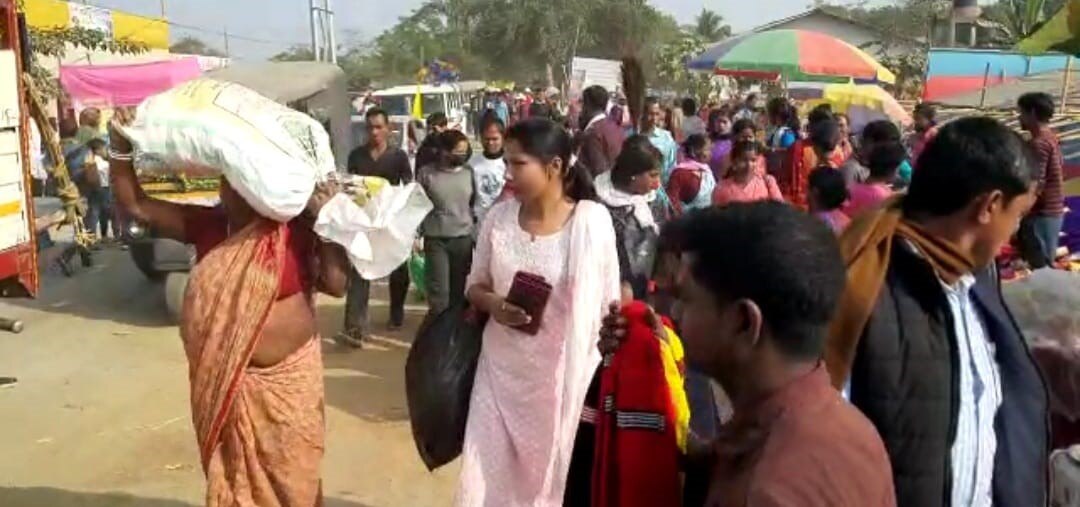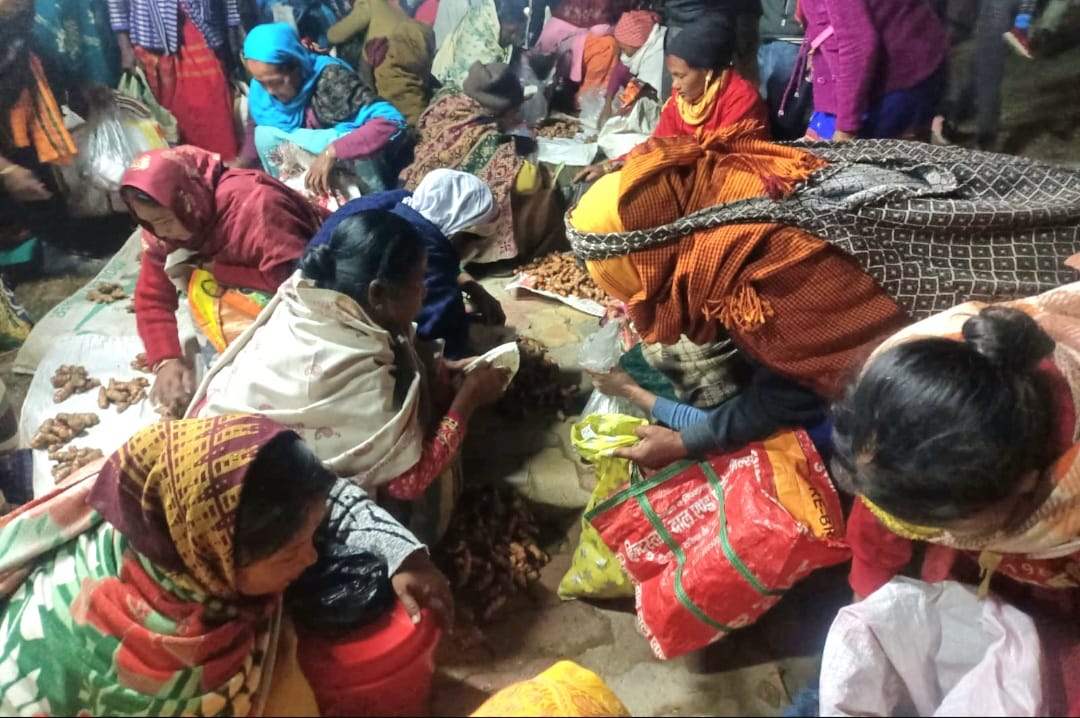Guwahati: Today we take you to a remote India where “Currency” holds no value or importance. We are talking about the rarest of rare business events, where the world’s oldest mode of trade is still kept alive. It’s a fair where you “Barter” love for love”.
For the generation which ensures that everything of their need, choice and want is delivered through the press of the button on their mobile phone, this piece of news might seem like a fairy tale or some fable that existed 500 years back.
For the online trading agencies like Myntra and Flipkart, this would seem queer, but the fact is that today we take you to a fair which trades on the age-old principle of “Barter”.
Yes, you can forget your currency, credit or debit cards or have to go online when you are in the country’s rarest of rare fair, the Jonbeel Mela. The only of its kind in the entire country, you can trade any item in the fair with the exchange of your product for an equal amount.
The fair is held in Jagiroad, some 60 kilometers from Assam’s capital Guwahati. It’s here that you can buy the products of hills brought by the tribe of the Tiwa community in exchange for your own. No weights, no scales and most importantly no money. Everything is based on strong trust, belief and mutual consent.
Held on the banks of the crescent moon-shaped lake and thus the name Jon (Moon) Beel (lake) mela, the genealogy of the fair can be traced back to the 15th century with a three-day programme under the auspices of the then Gorbar kingdom with the participation of the Jaintia king of neighbouring Meghalaya.
The world’s oldest system of trade is kept alive by the Tiwas, a tribe of Central Assam and neighbouring Meghalaya in the fair. A few days before, the fair which falls on the Makar Sankranti, members of Tiwa, Karbi, Khasi and Jaintia tribes, come down from the neighbouring hills with various products.
The products usually traded during the fair include ginger, bamboo shoots, turmeric, pumpkin, medicinal herbs, dried fish and ‘pithas’ (rice cakes). The tribal barter their products with salt, oil, clothes utensils and other items which Mother Nature does not bestow them. The fair transactions defy all laws of business economics.
The fair begins with an ‘Agni Puja’ (an obeisance to the fire god) for the well-being of humanity.
The organizers of the Queer fair have been expressing that the fair needs a permanent land of its own so that the centuries-old tradition can be kept alive and continue for many centuries to come.
Assam chief minister Himanta Biswa Sarma who visited the fair on Friday said that the state government is planning to allot a plot of permanent land for the fair.
“Organizers of the Jonbeel mela need a plot of land of their own to hold the fair in a proper way so we have decided to allot a plot of land to hold the fair,” said Assam chief minister Himanta Biswa Sarma.
As we gathered our needs from the fair, and most importantly without shelling a dime, we kept on thinking as to what keeps the ancient practice of trade alive in the 21st century. Probably it’s the barter of Love for Love which is the driving force of the fair which is unique in the world.
Barter-perhaps we should think about it; if not goods, let’s use this system to exchange ‘love for peace’ and ‘peace for unity’. Let’s make ‘barter of love’ the new cool.


